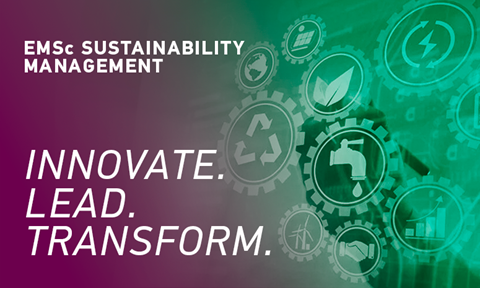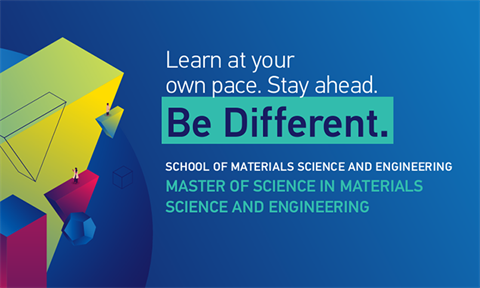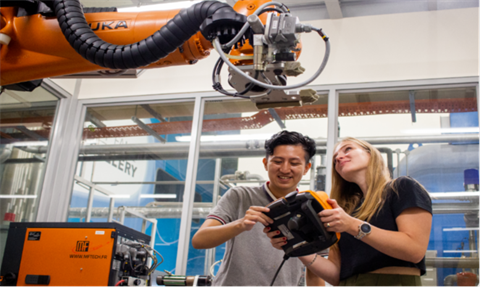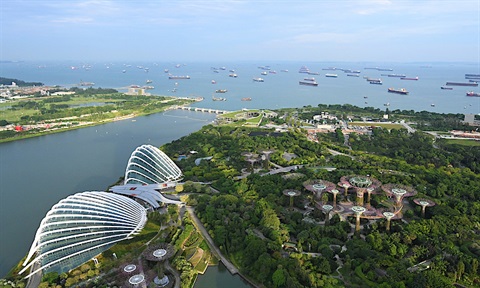Sustainability Education
Education is the key enabler of creating a sustainable world for future generations. At NTU, we seek to incorporate sustainability education for students at different stages of their learning journey, through relevant courses or programmes, to provide them with the foundation and practical tools for understanding the concepts of sustainability and applying them to solve real world problems.
Undergraduate Programmes
Since 2021, we have introduced a sustainability course in our common interdisciplinary core curriculum for all undergraduates. This course aims to develop students with the critical skills to collaborate across disciplines to systematically analyze major sustainability challenges from the perspectives of society, economy, and the environment. Students will learn to address sustainability issues from different viewpoints and at different scales. They will then use these skills to discuss and propose solutions for sustainability challenges facing Singapore and the world.
Bachelor of Engineering in Electrical & Electronic Engineering with Second Major in Society and Urban Systems
The School of Electrical and Electronic Engineering is presently one of the largest engineering schools in the world with an undergraduate enrolment of over 3000 students. Ranked 1st in Asia and 6th in the world in QS ranking, our school molds students into future-ready engineers, ready to spark new discoveries in technology and innovation. Our Undergraduate programmes strike a balance in providing a multifaceted curriculum compassing major areas in electrical and electronic engineering and cross-disciplinary courses in arts, business and humanities.
Our education roadmap is based on the following aspects:
Engineering design
Project work
Laboratory experiments
Industrial attachment programme for third-year students
Final year project
The industrial attachment programme enriches students’ learning experiences and gives them early exposure to the engineering industry. For their final year projects, students put on their thinking caps and work on real-life problems that are both research- and industrial-based.
Upon graduation, students can pursue a higher degree by research/coursework in NTU or in other countries.
Singapore-Cambridge GCE “A” Level
Pass in H2 Level Mathematics, and
Pass in H2 Level Physics/Chemistry/Biology/Computing, and
Pass in H1 Level/GCE “O” Level Physics 1 or equivalent
Polytechnic Diploma
Polytechnic Diploma holders or Final Year students with relevant diplomas from a local polytechnic in Singapore will be considered for direct entry into the second year.
The list of acceptable diplomas is available at here.
International Baccalaureate Diploma
Pass in Higher Level Mathematics, and
Pass in Higher Level Biology/Chemistry/Computer Science/Physics, and
Pass in Standard Level Physics 2 or equivalent
NUS High School Diploma
Major CAP of 2.0 in Mathematics, and
Major CAP of 2.0 in Biology/Chemistry/Physics, and
Overall CAP of 2.0 in Physics 3 or equivalent
International and Other Qualifications
Pass in Senior High School Level Mathematics, and
Pass in Senior High School Level Biology/Chemistry/Physics, and
Pass in Junior High School Level Physics 4
NOTE
1 Pass in H1/'O' Level Physics is only applicable to applicants who have not read H2 Level Physics.
2 Pass in Standard Level Physics is only applicable to applicants who have not read Higher Level Physics.
3 Overall CAP of 2.0 in Physics is only applicable to applicants who have not majored in Physics.
4 Pass in Junior High School Level Physics is only applicable to applicants who have not read Senior High School Level Physics.
For more information, do refer here.
Students with outstanding Singapore GCE ‘A’ Level, International Baccalaureate (IB), and NUS High School Diploma results may be eligible for exemptions from up to 3 selected first-year courses.
Polytechnic Qualifications
Course exemption for top local polytechnic students may be reviewed on a case-by-case basis, depending on the diploma and courses that students have taken in their respective polytechnic, and if they satisfy the requirements/conditions set by their respective engineering schools. Generally, students with an Advanced Certificate, Diploma Plus certificate and/or Certificate of Merit or Distinction may be considered for exemption from up to 4 courses or 12 AU, depending on the relevance of the polytechnic courses taken and the grades obtained.
Click here for more information.
Full Time
4 years
The structure of the Bachelor of Engineering with a Second Major in Society and Urban Systems programme integrates the requirements of both majors within the normal candidature of 4 years.
For their Second Major in Society and Urban Systems, students will take 4 foundation core courses and specialised elective courses which can be selected from 3 areas – Urban Economics and Public Policy, Society and Culture, and Water and Environmental Management.
Students will take these courses throughout their four years at the School. Click here for more information.
A bachelor’s degree from EEE will open up a world of opportunities. Some industries EEE graduates can enter include:
Aviation
Banking & Finance
Biomedical & Healthcare
Construction
Control & Automation
Computer Engineering
Electronic Products
Electronics, Semiconductor, IC Design
Information & Communication
Information Technology
Internet Services
Machinery & Equipment
Manufacturing
Power & Clean Energy
Public Administration & Defense
Telecommunication
- Engineering
- Sustainability
- Full-time
- Single Degree with 2nd Major
- AY2019/2020
- College of Engineering
- School of Electrical and Electronic Engineering
- Bachelor of Engineering in Environmental Engineering
- Bachelor of Engineering in Bioengineering
- Bachelor of Engineering in Chemical and Biomolecular Engineering
- Bachelor of Science in Environmental Earth Systems Science with three specialization options (Geosciences, Ecology, Society)
- Bachelor of Science in Environmental Earth Systems Science and Public Policy and Global Affairs
- Bachelor of Science in Chemistry and Biological Chemistry with Second Major in Environmental Science
- Bachelor of Science in Biological Sciences
- Bachelor of Science in Physics & Energy Studies and Education
- Bachelor of Arts in Geography
- Second Major in Sustainability
- Second Major in Food Science and Technology (Open to Bioengineering, Chemical and Biomolecular Engineering, Chemistry and Biological Chemistry, Biological Sciences)
- Second Major in Society and Urban Systems (Open to Civil Engineering, Electrical & Electronic Engineering, Environmental Engineering, and Mechanical Engineering)
- Minor in Environmental Sustainability
- Minor in Sustainable Urban Planning
- Minor in Environmental Management
- Minor in Environmental Humanities
- Minor in Science, Technology and Society
- Minor in Science of Learning
- Minor in Chemistry and Biological Chemistry
Postgraduate Programmes
NTU is pioneering a new push in PhD education that will tear down barriers and drive research into areas that need a multi-disciplinary approach. In keeping with global trends and needs, students at the Interdisciplinary Graduate Programme at NTU will concentrate on two or more disciplines, instead of one. Today, fresh thinking is urgently needed to mitigate many global challenges, not least in environmental sustainability, the creation of viable alternative energy solutions, and many other wide-ranging and complex issues.
- IGP-APRU-Global Sustainability, Waste & the City
- IGP-Earth Observatory of Singapore (EOS)
- IGP-Singapore Centre for Environmental Life Sciences Engineering (SCELSE)
- IGP-Energy Research Institute @ NTU (ERI@N)
- IGP-Nanyang Environment & Water Research Institute (NEWRI)
- IGP-NTU Institute for Health Technologies (HealthTech NTU)
- GIS and Geospatial Learning in Sustainability
Sustainability has become a key theme in higher education globally. It is also by now a core component of the revised MAHE programme. The spatial thinking tools and applications that you will learn in GIS will help you to better comprehend sustainability issues as well as devise solutions for such problems. This course will enable you to apply GIS vis-a-vis cross-disciplinary perspectives in the Humanities with respect to the Southeast Asian context.
- Global Cities
This course aims to introduce the urban ways of life and appreciate the emergence of global cities beyond the Global North. The course will also include various empirical and grounded experiences of global cities around the world, especially on issues related to urban liveability, sustainability, water, housing and other urban infrastructure issues.
- Environmental Planning and Management
This course examines selected environmental challenges in urban areas and explores planning solutions and management options to avoid or mitigate such problems. Multidisciplinary, integrated solutions that follow principles of sustainability are emphasized.
- Discourses in Sustainability
The environmental and social impacts of global climate change been increasingly emphasised. Accordingly, there is a need to equip learners with the history of sustainability studies, alongside current debates and possible future trajectories of this discipline. This knowledge will help learners better understand situations related to climate change and also opportunities in fostering environmental sustainability.
- Field Inquiry in Sustainability
Fieldwork strengthens our classroom concepts and gives the opportunity to understand the world through inquiry- based learning. This course will equip learners with both the qualitative and quantitative skills to collect and interpret data in ways that can help to inform environmental solutions for a more sustainable future.
- Second Major in Sustainability
- Aspiring students with a passion for Sport Science & Management (SSM) now can complement their degree by undertaking a Second Major in Sustainability. This Second Major in Sustainability within the SSM degree programme equips students with the knowledge and skills to address pressing environmental and social challenges faced by the sports industry.
- MBA (Sustainability & Innovation) Track
- Master by Research in Earth and Environmental Science
- Doctor of Philosophy in Earth and Environmental Science
- Joint NTU-TUM Master of Science in Green Electronics
- Master of Engineering (Research) in Civil and Environmental Engineering
- Doctor of Philosophy in Civil and Environmental Engineering
- Doctor of Philosophy in Biological Sciences
- Master of Science in Civil Engineering
- Master of Science in Maritime Studies
- Master of Science in Smart Manufacturing
- Master of Science in Power Engineering
- Master of Science in Materials Science and Engineering
- MBA (Strategy & Innovation)
- Master of Science in Finance
Continuing Education
NTU Continuing Education offers a wide range of programmes and courses for working professionals that are curated from various disciplines and conducted via different learning platforms. Aligning with the Government’s concerted effort to build sustainability as a way of work, play and life, that is the Green economy, specialised topics such as Sustainability Design, Energy Management, Environmental Management and etc. are created and delivered as either short courses or semester long courses, credit-bearing and stackable towards the relevant certificate(s) such as Specialist, Graduate and/or FlexiMasters certificate.














/enri-thumbnails/careeropportunities1f0caf1c-a12d-479c-be7c-3c04e085c617.tmb-mega-menu.jpg?Culture=en&sfvrsn=d7261e3b_1)

/cradle-thumbnails/research-capabilities1516d0ba63aa44f0b4ee77a8c05263b2.tmb-mega-menu.jpg?Culture=en&sfvrsn=1bc94f8_1)

7e6fdc03-9018-4d08-9a98-8a21acbc37ba.tmb-mega-menu.jpg?Culture=en&sfvrsn=7deaf618_1)

3b155ab0-477f-45d6-9972-7465366ee023.tmb-.jpg?Culture=en&sfvrsn=7e8fb3bc_3)

.tmb-listing.png?Culture=en&sfvrsn=1cb78cbd_1)
67c7970f-c11d-4403-b8eb-7d52eb23d471.tmb-listing.jpg?Culture=en&sfvrsn=e00131a8_1)






